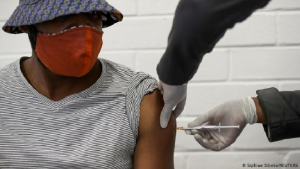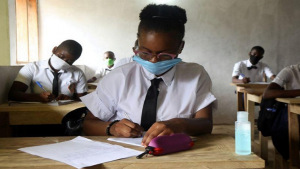There are growing calls for the government to drive the transformation of the educational publishing sector. The publishing of primary and high school books is still largely dominated by a few large multinational publishers.
These publishers have been producing schoolbooks and related study materials for the Department of Basic Education for many years. The educational textbook sector is estimated at more than R2 billion annually.
The educational book market is the backbone of the publishing industry in the country. The publishing industry was worth an estimated R3.5 billion in revenue in 2019. Educational books contribute around 60% of the revenue in the industry, due to the large school-going population.
But, it is the dominance of multinationals in the local educational book publishing that is concerning and the Department of Basic Education is the single biggest buyer of educational books.
Former Wits University Student Representative Council President, Mpendulu Mfeka, blames the Department of Basic Education for the current situation. He says the government should use its power to transform the sector.
“You can not have one publisher having a monopoly of textbooks across SA for over 2 million learners. Government must create an entity responsible for the publication of textbooks.”
Growing calls for transformation in the education publishing sector:
Barriers of entry to market
High barriers to entry make it difficult for new publishers to enter. The tender requirements are often costly for emerging publishers.
“The DBE (Department of Education) has a process where it reviews all textbooks from publishers, which books they are going to authorise. I think it’s eight textbooks per subject, per grade. That is risky for publishers especially smaller publishers to develop the material, the cost of doing that. If they are not successful it’s difficult for smaller publishers. Larger publishers are able to take that risk and spread it per subject, per grade. There is a way in which the approval process may limit the diversity in the field,” says Education Expert Mary Metcalf
The Publishers ‘Association of SA (PASA) which represents most local publishers shares the same sentiment.
“To play a role in this industry you must be able to lay some capital to sustain yourself, for instance, if you’re a startup in the educational space, you must have funds to develop material for a year or two for which you will not get a return until such time that the education department calls for a tender to evaluate new material, you have to be fortunate to be able to be included,” says Executive Director of PASA Mpuka Radinku.
Lack of transformation
PASA says it is also concerned about the lack of transformation in the sector. The association is working on the transformation master plan for the industry. But, others argue that the plan is driven largely by fear, as the Department of Basic Education continues to investigate the state-sponsored publishing of textbooks.
However, the Publishers’ Association says the state-owned publishing will not be sustainable.
“What the industry provides is a sustainable model that can be utilised by the education authorities and any other sector of society to ensure that the sector continues to contribute to the education and cultural growth,” says Radinku.
Anelile Gibixego is a self-published author. Gibixego has tried to enter education publishing with no luck.
“It’s difficult to get into the curriculum, you don’t know how to get there. The national library will register your book but no follow-up. Basic education has the power to support black authors.”
Biggest players in the industry
The British multi-national publishing, Pearson Group is one of the biggest players in the country’s educational publishing industry. The company enjoys a 35% market share in the educational and textbook publishing market.
Other big players are Macmillan and Oxford University Press, each having a market share of 13%.
The Pearson Group in Africa says its foreign shareholding has no bearing on the content that it creates for the local market.
“Although we are part of the Pearson Group that is global, all our employees are all the subjects matter experts that we use are local, we work with local South Africans to create local content, we do not import it and bring it to South Africa. If you look at all our author panel, subject matter panel, reviewers, freelancers, they are all South Africans,” says Pearson Africa’s, Dr. Benadette Aineamani.
Shortage of black authors
The other challenge is the lack of black authors for educational books.
“In 2019 we ran an author’s training workshop, targeting black authors to align the existing authors to the digital trends over five days. We also gave them training for six months that was online. In 2021, we onboarded 77 participants, aspiring authors, we took them through training for two weeks. Some won cash prices and joined our database of authors.”
The Department of Basic Education was not available for comment.
SABC Economics Editor Tshepo Mongoai says education material continues to dominate the market:






